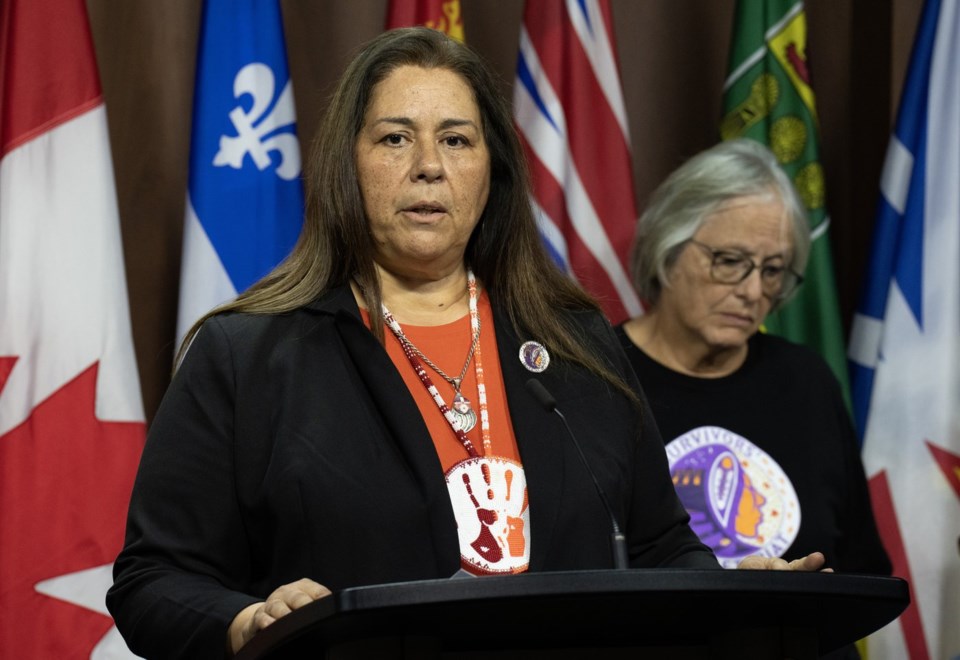OTTAWA ÔÇö An organization that works to document what happened at a notorious residential school says it's at risk of going bankrupt by the end of the month unless sa╣·╝╩┤½├¢ makes a decision on whether it will fund the group's work.
The Survivors' Secretariat, which works to uncover the truth about what happened at the Mohawk Institute, a residential school that operated in Brantford, Ont., also says the ministry of Crown-Indigenous relations is letting down survivors with the delays in processing its applications.
"I have to go tell (survivors) that sa╣·╝╩┤½├¢ made a promise, and once again, they broke that promise," said Laura Arndt, the secretariat's lead.
"Every time survivors ask me for answers to all these (funding) questions, all I can say is, 'I don't know,' because they don't return my phone calls.
Arndt said the treatment is "a historic mirroring of how our people get dealt with when they're dealing with sa╣·╝╩┤½├¢ ÔÇö we just get pushed aside and ignored."
In 2021, after numerous First Nations reported finding what appeared to be human remains on the sites of former residential schools, Ottawa set aside money to fund searches of the sites and documentation of what happened at the schools.
More than 150,000 children were forced to attend residential schools and many survivors detailed the horrific abuse they suffered to the Truth and Reconciliation Commission. An estimated 6,000 children died while attending the schools, although experts say the actual number could be much higher.
The Truth and Reconciliation Commission found the schools were a "systematic, government-sponsored attempt to destroy Aboriginal cultures and languages and to assimilate Aboriginal peoples so that they no longer existed as distinct people," and that they amounted to cultural genocide.
The Mohawk Institute opened its doors in 1828, and nearly 50 students died over the years it was open, according to the National Centre for Truth and Reconciliation.
Part of the secretariat's work is to investigate those deaths, conduct ground searches to try and find burial sites, review troves of records about the school and support survivors in their healing journeys.
But that work has no clear path to continue without funding from sa╣·╝╩┤½├¢, which Arndt says it has not received in months even though the group sent in its applications on time.
"It has crippled us as an organization, and as of the end of December, I'm out of money," Arndt said.
"And I can't get answers from sa╣·╝╩┤½├¢."
In a statement, a spokesperson for Crown-Indigenous Relations Minister Gary Anandasangaree did not directly address Arndt's concerns, but said the deadline to apply for funding was Nov. 15, and that it's in line with the deadline in previous years.
"As is the case with any program, we must assess all requests based on the criteria provided to communities and organizations. We created this fund in order to support communities in their healing journey in response to the shameful history of residential schools," said Bahoz Dara Aziz.
"We're very much committed to doing that."
Arndt said the organization still hasn't received a response to a funding request from last October, and another from February, on top of the application they submitted for the November deadline.
The biggest question she has beyond how her organization will survive is why the Canadian public isn't holding its government accountable after a "groundswell" of support for the initiative in 2021.
"What breaks my heart is it's three and a half years later, and we can't get that same groundswell in support from sa╣·╝╩┤½├¢," she said.
This report by The Canadian Press was first published Dec. 18, 2024.
Alessia Passafiume, The Canadian Press



